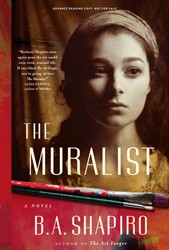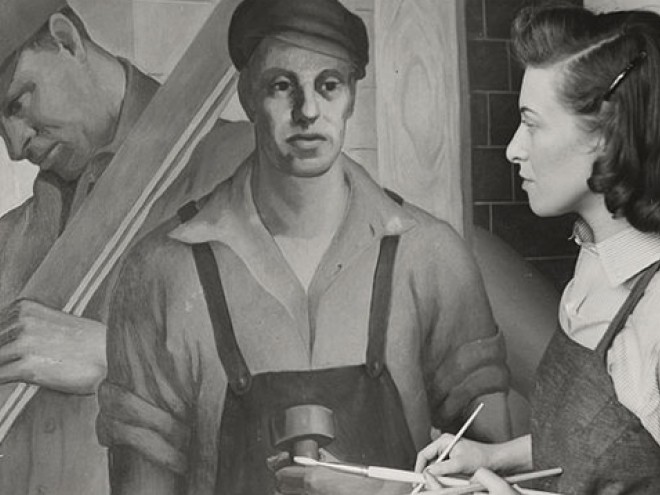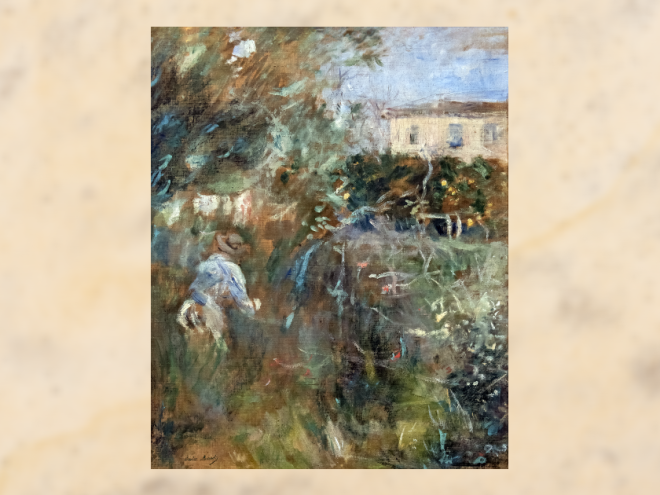It’s the summer of 1922, and nineteen-year-old Paulien Mertens finds herself in Paris — broke, disowned, and completely alone. Everyone in Belgium, including her own family, believes she stole millions in a sophisticated con game perpetrated by her then-fiancé George Everard. To protect herself from the law and the wrath of those who lost everything, she creates a new identity— a Frenchwoman named Vivienne Gregsby — and sets out to recover her father’s art collection to prove her innocence — and exact revenge on George. When the eccentric and wealthy American art collector Edwin Bradley offers Vivienne the perfect job, she is soon caught up in the Parisian world of post-Impressionists and expatriates — including Gertrude Stein and Henri Matisse with whom Vivienne becomes romantically entwined. As she travels between Paris and Philadelphia where Bradley is building an art museum, her life becomes even more complicated: George returns with unclear motives … and then Vivienne is arrested for Bradley’s murder. B. A. Shapiro has made the historical art thriller her own. In The Collector’s Apprentice, she gives us an unforgettable tale about the lengths to which people will go for their obsession, whether it be art money love or vengeance.

Fiction
The Collector’s Apprentice: A Novel
March 29, 2018
Discussion Questions
Courtesy of Barbara Shapiro
- One of the themes of the book is that we see only what we want to see, and that we’re easily swayed by outward appearances. Do you think this is true? How does Shapiro develop this theme throughout the novel? Have you had any experiences in which you were fooled by someone pretending to be someone or something they weren’t?
- The majority of The Collector’s Apprentice takes place in the 1920s and is told from Vivienne’s point of view. However, there are also portions narrated by Paulien that take place before the main storyline, and portions narrated by an older Vivienne that take place after the main storyline. How did this structure affect your reading experience?
- There are also intermittent chapters from George’s point of view. How different would the story have been without the antagonist’s take? What do we learn about Vivienne/Paulien from seeing her through George’s eyes?
- The post-Impressionists pushed beyond the work of the Impressionists by shifting focus from what a subject actually looks like to how the artist perceives it. Why do you think Shapiro chose this particular artistic backdrop for her novel? Why was the public so shocked by the post-Impressionists at first, and how do you think their work came to be appreciated over time?
- As in many of her books, in The Collector’s Apprentice, Shapiro explores the question of what her characters are willing to do to get what they want. Does Paulien cross an ethical line to get what she wants? Does Vivienne? George? Edwin? Do you think any of their morally ambiguous decisions are justified?
- Another question that arises from the story is: Who owns art? If you purchase a piece of art, does it belong to you forever, and are you free to destroy it or keep other people from enjoying it? Can anyone “own” great art, or is there a cultural obligation to share it with the world? Was Bradley right to control who could see his artwork? Was his real-life counterpart, Albert Barnes?
- Do you think that either Paulien or George would be able to successfully accomplish their disguises and changes of identity today? Would the internet and social media make it more or less difficult?
- Do you believe Paulien was in any way responsible for what George did to her family? Why or why not?
- There are a number of love stories in The Collector’s Apprentice. Do you believe that any of these relationships were “true love”? Did Paulien love George? Did Vivienne? Did Bradley love Vivienne? Did Vivienne love Matisse and did he love her? Did George love either Paulien or Vivienne? Is a man like George capable of love?
- Shapiro based George on her study of sociopaths, imbuing him with many of the characteristics of this kind of personality disorder, particularly his lack of empathy. Does his inability to put himself in someone else’s shoes hurt him or help him? Have you ever encountered anyone with these traits in your own life?
- In The Collector’s Apprentice, Shapiro imagines interactions between persons who actually existed and characters she has created. Does this enhance or detract from the believability of the story?
- Shapiro included an author’s note that explains some of the discrepancies between the story and historical events. Was this helpful? What are some of the questions you would ask her if you could?

Jewish literature inspires, enriches, and educates the community.
Help support the Jewish Book Council.


